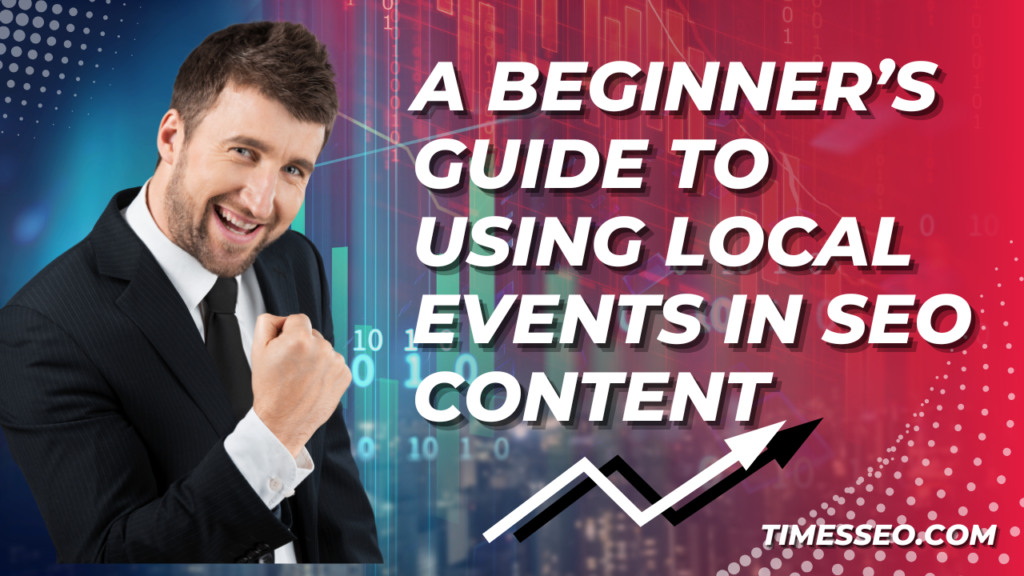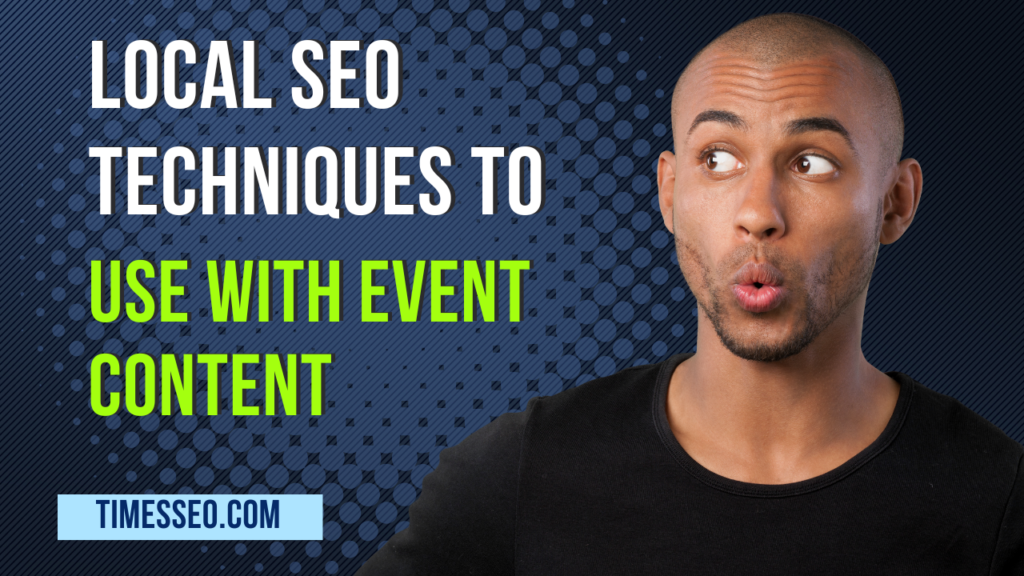
A Beginner’s Guide to Using Local Events in SEO Content
Learn how to boost your local search rankings by using local events in SEO content. This beginner’s guide explains how to find relevant events, create optimized content around them, and improve visibility in your community. Perfect for businesses looking to connect with local audiences and drive organic traffic
Table of Contents
Introduction
Local events are one of the most effective strategies available to businesses when it comes to local SEO, yet they are sometimes overlooked. Whether it’s a community fair, music festival, or charity run, these happenings provide golden opportunities to drive traffic, earn backlinks, and build community relevance.
Let’s break down exactly how to turn local events into SEO gold.
Why SEO Needs Local Context
Adding the name of your city to keywords is only one aspect of local SEO. It’s about building relevance within your geographic area. Local events assist you in doing so by demonstrating to search engines and users alike that your material is relevant, location-aware, and community-engaged.
Power of Local Events in Search Rankings
Search engines prioritize fresh, relevant content. Event-based posts signal both. When you write about local events, you naturally include location-based keywords, dates, and real-time search phrases. That’s a trifecta for better rankings.
Understanding Local Event SEO
What is Local Event SEO?
It’s a strategy where businesses leverage local events—either their own or in the community—to drive SEO value. This includes publishing optimized blogs, using event schema, and promoting across multiple platforms.
How Google Understands Event-Based Content
Thanks to structured data and semantic search, Google can now “understand” content that talks about events. If you mark up your content correctly, your event might even show up in the “Events” carousel in search results.
Benefits of Using Local Events in Your Content Strategy
- Higher Engagement Rates
- Location-Based Organic Traffic
- Improved Brand Visibility
- Increased Opportunities for Backlinks
Finding Local Events to Feature
Where to Source Local Events
Event Calendars
Check city or county websites for a list of upcoming local events.
Local News & Media
TV stations, newspapers, and online magazines often post detailed event guides.
Community Boards & Social Media
Meetup, Eventbrite, and Facebook Events are excellent resources for finding local buzz.
Picking Events Relevant to Your Niche
You don’t have to cover everything. Choose events that align with your industry or target audience. A yoga studio might write about wellness expos. A café might cover food truck festivals.
Creating SEO-Optimized Event Content
Blog Posts About Upcoming Events
Write preview articles. Include details, personal commentary, and keyword-rich headings.
Event Recaps and Highlights
Post-event blogs are great for keyword longevity and getting shared by attendees.
Guides and “What To Expect” Posts
Create in-depth guides that people will search for before attending the event.
Local SEO Techniques to Use With Event Content
Geo-Specific Keywords
Use city names, neighborhood info, and even venue locations in your content naturally.
Embedding Maps & Directions
Not only helpful for readers—also gives search engines more location clues.
Internal Linking to Local Service Pages
Use the content as an entry point to link to your business offerings in the same city.
Structured Data and Event Schema Markup
Add schema tags so Google can index and display your event data in search results.
Promoting Your Event Content
Social Media Promotion
Share your blogs across Facebook, Twitter, Instagram, and LinkedIn with event hashtags.
Email Campaigns
Send “Upcoming Events” emails to subscribers with links to your optimized content.
Partner with Local Influencers
Collaborate with local content creators to get extra reach.
Measuring the Impact of Event-Based SEO
Metrics to Track
- Organic traffic to event posts
- Bounce rate
- Time on page
- Backlinks earned
Tools for Monitoring Performance
Use Google Analytics, Search Console, and tools like Ahrefs or SEMrush to see what’s working.
How to Adjust for Better Reach
Look at what types of events and content formats perform best, then double down on them.
Mistakes to Avoid
Overstuffing Keywords
Yes, use location keywords—but don’t jam them in awkwardly.
Writing Irrelevant or Dated Content
Avoid covering past events or ones that don’t relate to your niche.
Not Updating Event Info Timely
Make sure all dates, times, and venues are up-to-date or you’ll lose credibility.
Real-Life Examples of Local Event SEO Success
A local bakery partnered with a city-wide food festival and created a blog preview. The result? 3,000+ organic views, a 25% increase in newsletter signups, and several local press mentions. Real impact, real fast.
Long-Term Strategy: Making Events Part of Your Calendar
Create a recurring content plan around local events. This builds consistency and positions your brand as a go-to local authority. Use an editorial calendar to plan posts a month in advance.
Conclusion
Local events are more than just community fun—they’re your secret SEO weapon. From boosting visibility to building trust and increasing traffic, local event content should be part of every small business’s SEO strategy. So, what event are you covering next?
Frequently Asked Questions
Events that are relevant to your industry and attract a broad local audience, like festivals, expos, and community fairs.
Ideally, 2–4 weeks before the event to give it time to rank and get shared.
Absolutely! It helps them compete locally and gain visibility in a crowded market.
If you have the budget, yes—especially on platforms like Facebook or Instagram.
Listicles, how-to guides, and “What To Expect” style posts work really well.
Table of Contents
Popular Posts
-
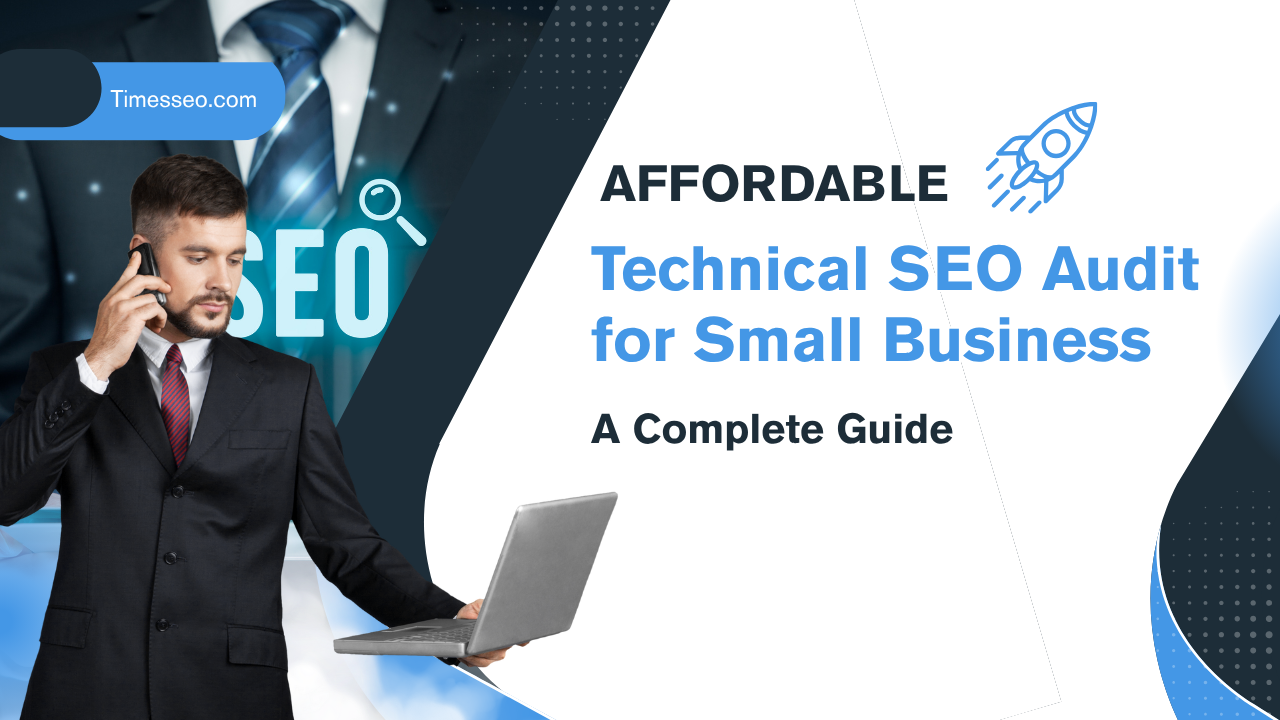 Affordable Technical SEO Audit for Small Business: A Complete Guide26 Jun 2025 Blog
Affordable Technical SEO Audit for Small Business: A Complete Guide26 Jun 2025 Blog -
 How to Get an Affordable Technical SEO Audit for Small Business27 Jun 2025 Blog
How to Get an Affordable Technical SEO Audit for Small Business27 Jun 2025 Blog -
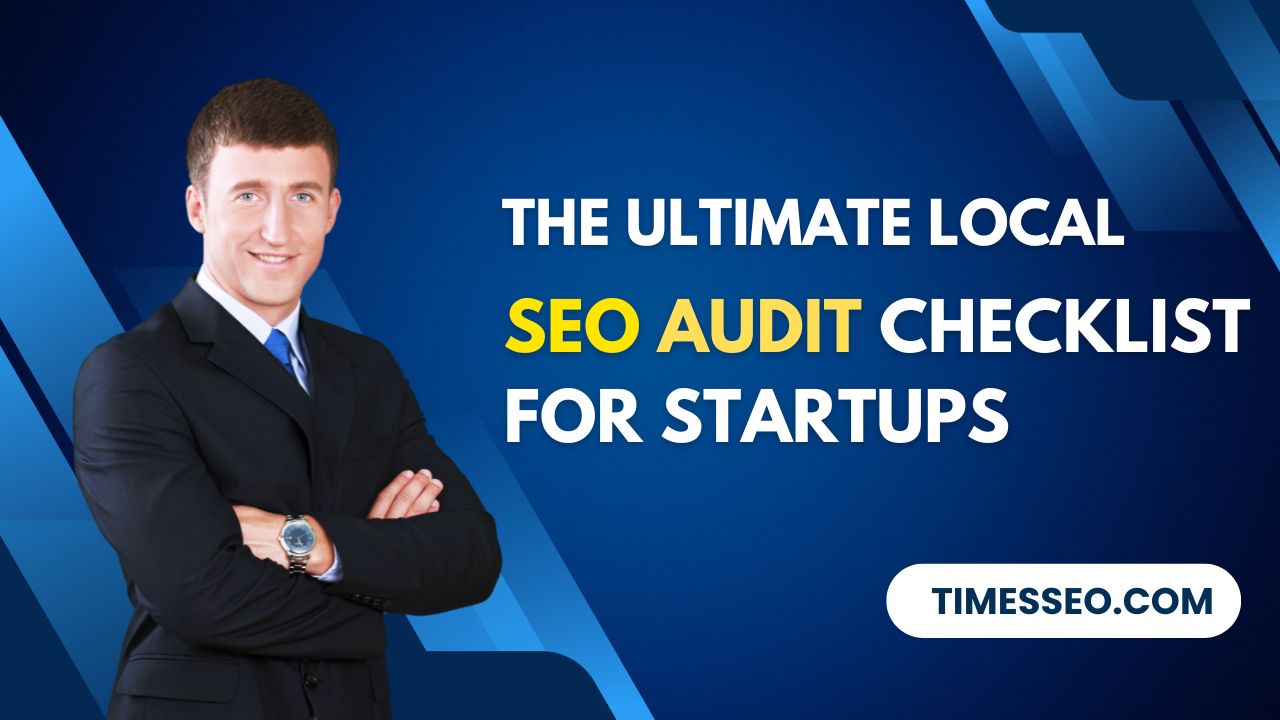 The Ultimate Local SEO Audit Checklist for Startups28 Jun 2025 Blog
The Ultimate Local SEO Audit Checklist for Startups28 Jun 2025 Blog -
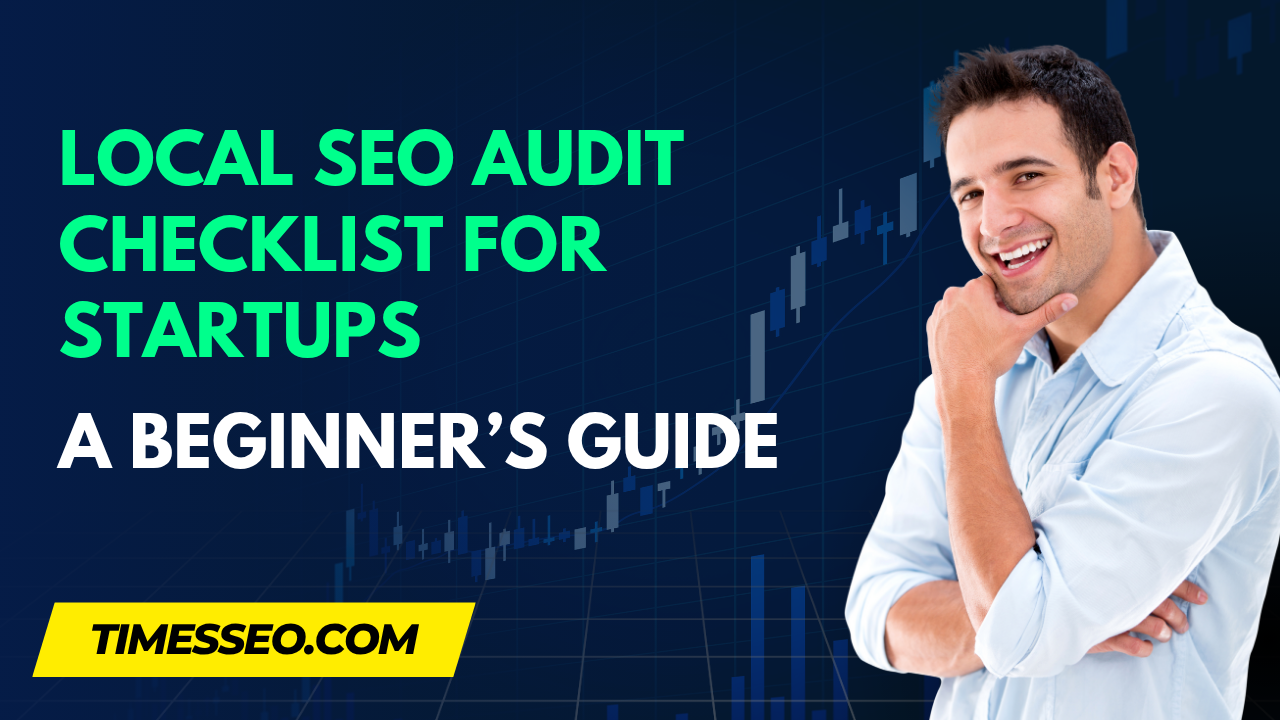 Local SEO Audit Checklist for Startups: A Beginner’s Guide28 Jun 2025 Blog
Local SEO Audit Checklist for Startups: A Beginner’s Guide28 Jun 2025 Blog -
 Top On-Page SEO Audit Steps for Service Websites Every Business Should Know29 Jun 2025 Blog
Top On-Page SEO Audit Steps for Service Websites Every Business Should Know29 Jun 2025 Blog -
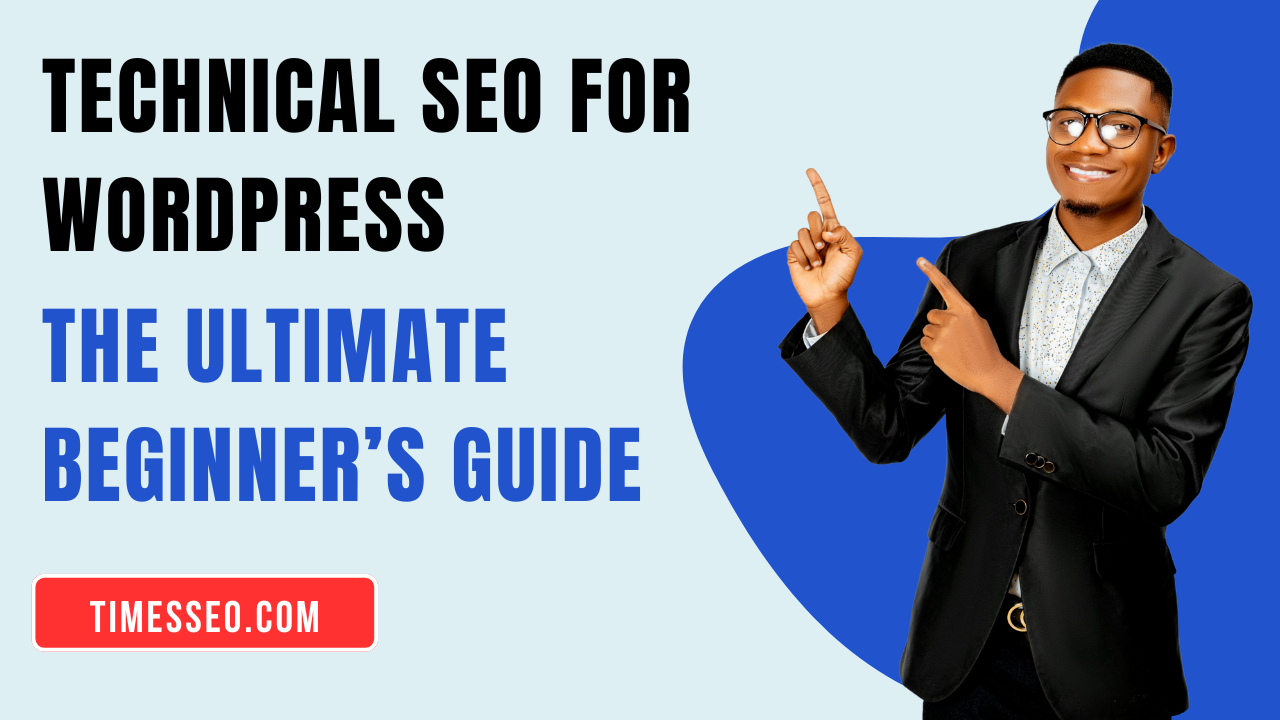 Technical SEO for WordPress: The Ultimate Beginner’s Guide01 Jul 2025 Blog
Technical SEO for WordPress: The Ultimate Beginner’s Guide01 Jul 2025 Blog -
 The Impact of On-Page SEO Audit Steps for Service Websites on UX01 Jul 2025 Blog
The Impact of On-Page SEO Audit Steps for Service Websites on UX01 Jul 2025 Blog -
 Technical Mobile SEO Audit Tips for Developers02 Jul 2025 Blog
Technical Mobile SEO Audit Tips for Developers02 Jul 2025 Blog -
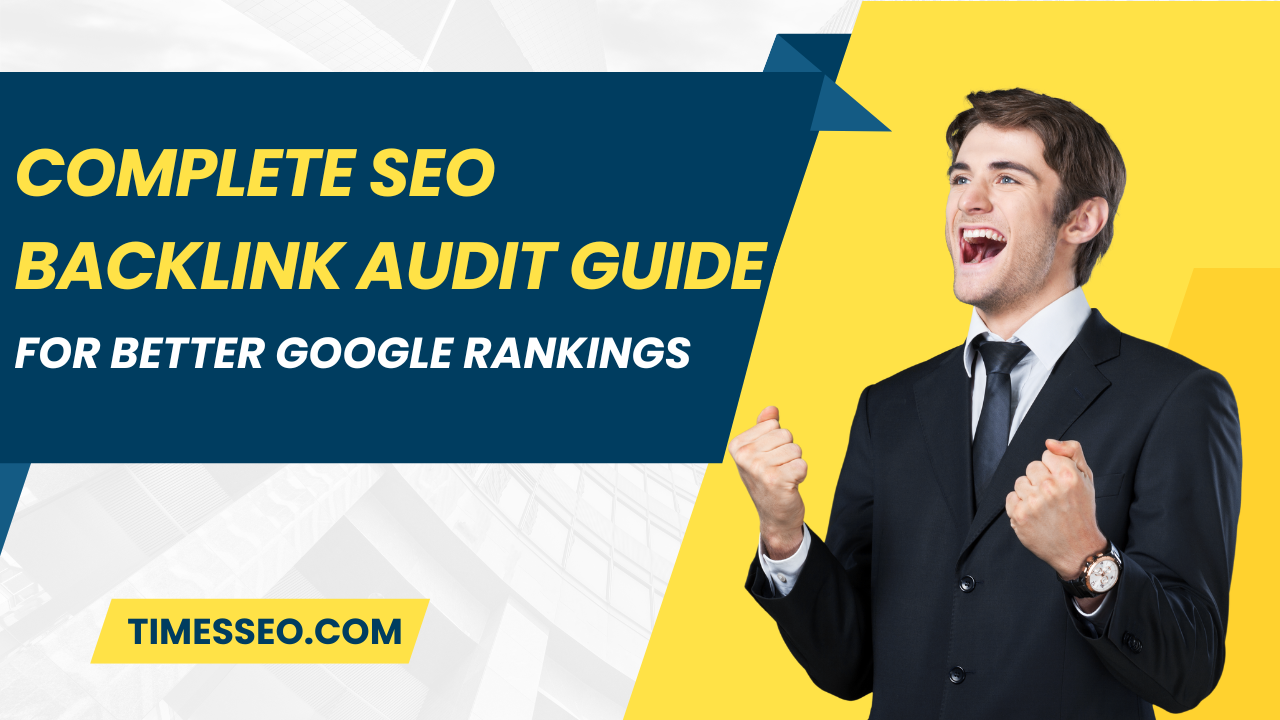 Complete SEO Backlink Audit Guide for Better Google Rankings03 Jul 2025 Blog
Complete SEO Backlink Audit Guide for Better Google Rankings03 Jul 2025 Blog -
 Boost Your Rankings with Technical SEO for WordPress01 Jul 2025 Blog
Boost Your Rankings with Technical SEO for WordPress01 Jul 2025 Blog

